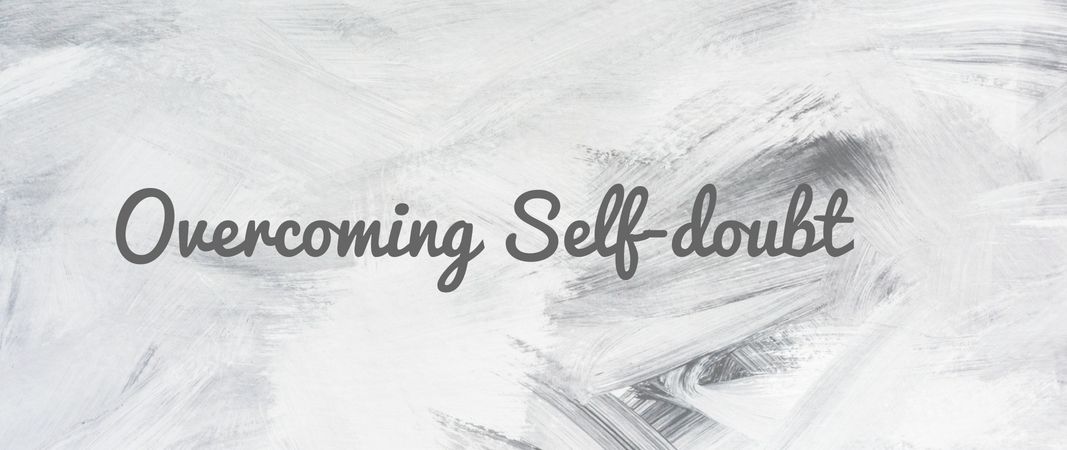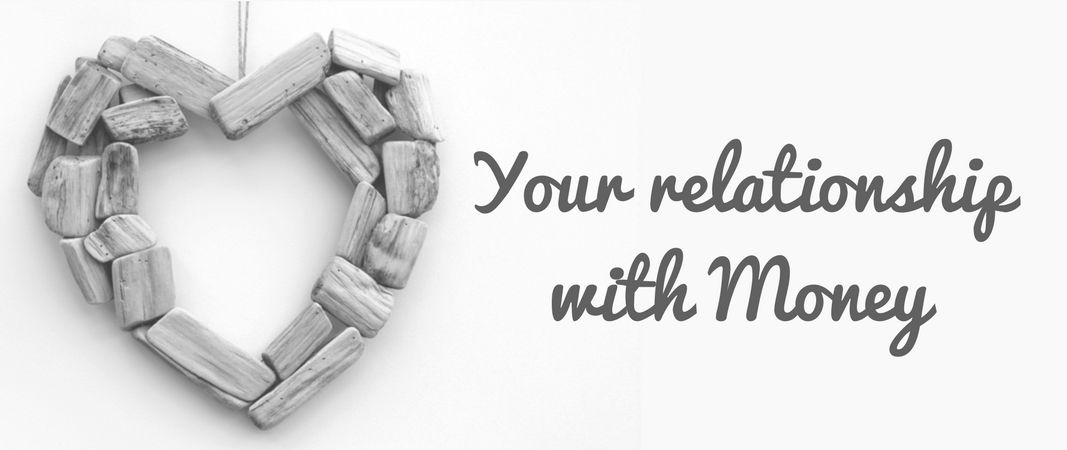|
Do you know your strengths? How great is it to know that we have strengths that will help us succeed on our journey? We have been trained to concentrate on our weaknesses so much that it very hard to think or even talk about our strengths. Knowing our strengths empowers us to take on new challenges and achieve greatness.
Do you ever ask yourself: “What are my strengths?”. Knowing the answer is very important to achieve what you are destined to accomplish in your personal and professional life. In this post, we will discuss how to discover and utilize your unique strengths. What are strengths? Let's start with some dictionary definitions:
Why do you need to know your strengths? Knowing your unique strengths helps you:
My Strengths Journey Three years ago, when I moved to the US, where people were more comfortable talking about themselves, I realized that I had to start talking about myself more. My journey to discovery of my strengths began. I initially didn't know where to start. I took the first step, did my research and got external support. Personally, I have had success with a combination of different tools and resources. Some of the tools that helped me discover my strengths include:
Top 5 Tips for your Strengths Journey You can start operating in your strengths zone by doing the following: Discover your strengths What do you do well? What do you enjoy doing? If you don't know your strengths, take a step to identify them with the help of available resources. Discovery is a conscious activity. You might also need to invest in some external resources. Know your strengths - It's worth it! Document your strengths It is crucial to visualize your strengths - Create a "Strengths Log." Write your strengths down in whatever way works best for you. You want to be able to look at your strengths regularly and remember them. Also, as you grow and develop, revisit your strengths at regular intervals to add new ones. Use your strengths Actively seek out opportunities where you can display your strengths and win. You gain confidence from excelling in your areas of strength. Develop your strengths Continuously work on developing your existing strengths further and also developing new strengths. Invest in learning and using tools that help you build your strengths. Market your strengths Share your strengths at every opportunity. Get comfortable talking about your strengths. Talking about your strengths magnifies them. Professionally, your resume should also reflect your strengths that are applicable. While interviewing, focus on your strengths. When you ask for a pay raise, crystallize your strengths and unique contribution. Final Thoughts
Great resources
4 Comments
You can overcome self-doubt and take on that amazing challenge. Have you been thinking about starting something new in your personal or professional life but you let self-doubt stop you? You are not alone. Recently, I shared some of my self-doubts with someone close to me. She said: "Isn’t life funny, self-doubt isn’t something I will associate with you. You are one of the most assertive and confident people I know.” Even when you might not see it clearly in someone around you, we are all plagued by self-doubt at different phases in our lives. Self-doubt almost stopped me from starting this blog. I'm glad I overcame self-doubt and embarked on this great journey.
Self-doubt is part of life. However, you can equip yourself with techniques to overcome it. In this blog post, we will explore some definitions, signs of self-doubt, reasons why we need to overcome self-doubt and effective ways to overcome your self-doubt. What is self-doubt? Let's look at some dictionary definitions of self-doubt.
How are you displaying self-doubt? Some ways self-doubt shows up include:
Why do you need to overcome self-doubt? When you actively work towards overcoming your self-doubt it enables you to do great things:
6 techniques to overcome self-doubt I want to encourage you to take an active approach to overcoming self-doubt with the help of some techniques that have helped me on my journey. Know your worth In my blog post Know your worth! I shared insights on the importance of knowing your value and worth. The best way to overcome self-doubt is to remind yourself of what your value is regularly. Your contribution to the world you are in is invaluable. You are the only one that can do what you do best. Share your story Take every opportunity to share your journey. You feel empowered when you share your story with other people. In the past three months, I have become more confident as I share my story in blog posts and conversations. Reflecting on my experience as well as the power of speaking your truth has helped me overcome my self-doubt. The more I share, the stronger my inner voice becomes. Get external support Especially when I am trying to do something big, and self-doubt sets it, I have learned to get support from my group of trusted friends. I share my dreams, thoughts, and fears with them. They naturally encourage me and help me gain more confidence in my ability to take the next step. Build a support system that helps you along your journey. Equip yourself Sometimes self-doubt warns you when you are about to start something new but lack some required skills or knowledge. Use self-doubt to your advantage as a gauge instead of a stop sign. Walk through what it would take to make a move and identify the new skills you are lacking. Get the skills and knowledge you are missing by getting training or learning on the job. I always doubted my writing skills, but I got tired of holding back and decided to take a writing course to improve my skills. Reflect on your achievements Remember when last you had self-doubt, pushed through and did something - you succeeded. I keep an achievements log that I regularly check when I start doubting my ability to be successful in something new. It helps me remember how I successfully overcame my self-doubt. Keep working on it You have what it takes to do the big things that you are destined to achieve. Stop thinking small, strive to reach great heights. I constantly work on doing new things, get the tools I need and work hard to break barriers. Take the approach of continuous improvement when you are overcoming your self-doubt. You get better at it, the more you practice and work on it. Final thoughts
Great resources “Enrich your financial portfolio with your savings” - MC Moving on to the next chapter of the Her Finances series – How to grow your Savings.
On my journey to Financial Independence, I learned the benefits of being disciplined in my savings. You might ask, have you always been successful? My honest response is, I have been 90% successful. The exceptions have been when I was going through transitions and had no income. With this blog post, I want to encourage you in every phase of your saving journey. It's an achievement to get started and an even more significant achievement to power through the learning phases. Benefits of growing your Savings To motivate you more, here are some compelling reasons why we should grow our savings:
My saving journey - First memory & learning to save My earliest memory of saving was when my mum opened Savings accounts for my sister and me at the age of three. I was so proud to save my money. Sadly life happened, and I wasn't able to continue my saving journey until I started my business at age 13 and started saving my profits. The seed of saving was planted and would later grow in high school. My friends and I replicated something we watched our mothers do. It was a saving system where we pulled money together to get larger sums. Each month, we pulled our money together, and one of us will take the bulk sum. We rotated until everyone got her chance to get the big sum. Continuing my saving journey, when I moved to Germany, I opened a fixed savings account where I saved fifty euros monthly. I remember having to squeeze fifty Euros. I had small beginnings to the saving discipline I have today. Today i am able to save about 25% of my income monthly. My Top 5 Saving Tips The five best practices below have helped me grow my savings over the past fifteen years. Make your savings a priority Your attitude towards saving should be to pay yourself first. Take out your savings before you start spending your money. If your savings are the last thing you take out monthly, it will never happen. Take the first step Start with whatever amount you can afford today. It is crucial to see your savings as a journey. It is not one and done; it is continuous. Increase your Savings when your income increases. Every time I get a salary raise, I increase my savings. I see more income as an opportunity to be more financially secure not spend more. Be consistent Make monthly payments to your savings account. I have had excellent results with transferring a fixed amount into my savings account on the same day of every month. The routine helps saving become second nature. Always save, no matter what. It is very easy to stop saving when things get tough. Set rules for when it is OK to change course or take money out. I only take money out of my savings to invest in learning, pay for periodic bigger bills and the things I saved for. Set savings goals and work towards them Plan your savings and define the goals you want to meet. Remember to set a timeline to achieve your goals. It's gratifying to reach your saving goals. When we set goals and track our progress, we increase our success rate. Suddenly something that feels like a punishment serves a purpose and becomes a little more exciting. Learn, adjust and pivot It's a journey, be ready to learn and make changes. Get to know what works best for you. Don't be discouraged when things don't go as planned. Keep learning, try new techniques and get the support you need. There are many useful resources to help you grow your savings, see some listed below. Final Thoughts
Great Resources
"We are who we are today as a result of the contributions of the great people in our lives"- MC My mother's birthday falls around Mother’s Day every year. I am excited to wish my mother a Happy 66th Birthday and Happy Mother’s Day 2018. This year I want to do something different and celebrate how she has impacted my life as a Woman.
My mother raised two great biological daughters as a single mum. She is also a mother figure to many other children. She contributes to the growth of many men and women. Most of my adult life I worked hard to learn from some of the mistakes my mom made. Recently, I changed my perspective and started thinking about the significant role my mum played in shaping the woman I am today. I want to take some time to share some of the lessons I learned from my mother. Lesson 1: Be Disciplined My mum is so disciplined that people around us often thought she served in the army. Throughout my developing years, she instilled the importance of discipline in everything we do. In my personal and professional life discipline has helped me address chaos. Lesson 2: Treat everyone equally and with respect My mum would always greet everyone and ask them how they are doing. She treats everyone equally no matter if the person was her boss, a janitor, a salesperson or a kid. She taught us to be respectful to everyone we came across. Because of my mum paying it forward, people always looked out for us. Learn 3: Work hard I watched my mum work multiple jobs simultaneously to provide for my sister and I. Till today my mum enjoys working and staying very busy. When life gets busy, I unleash the hard worker my mum trained. Lesson 4: Care for others My mum cares for people with everything she has emotionally, physically and financially. An incident I would never forget was on a Sunday morning when I was very young, a lady was run over by a bus, while people were watching the accidents, my mum ran over and carried this lady in her arms to a car that was transporting her to the hospital. My mother showed of empathy for people in different situations. Lesson 5: Be organized The organization skills my mum passed down to us has helped us thrive in life. This skills came in very handy when I moved to Germany at age fifteen and in my craft as a Project Manager. My mum encouraged us to be organized and on top of our tasks, finances, and responsibilities. Lesson 6: Keep it Simple On a recent trip to Nigeria, I was reminded of my mum's simplicity by seeing how she lived, how she worked and how she related to people around her. If you know me, you know that I run away from complexity and strive for simplicity in my life. We do not need much to be happy. Lesson 7: Be ready to serve My mum is always prepared to help. She lives by example - If there's a need, she is ready to step in. She taught me that no task is beneath me. My memories of my mum volunteering and taking us along with her date back to when I was three years old. Lesson 8: Be punctual A valuable lesson I learned from my mum was being punctual to everything. A punctual Nigerian – I know what you are thinking. Till today my mum arrives at least an hour early to everything she attends. I modified my time of arrival slightly. Lesson 9: Keep learning Working multiple jobs and raising two daughters did not stop my mum from taking weekend and evening classes to get her Masters. My mum taught me the value of continuous learning and developing new skills. Lesson 10: Never run out of salt I decided to wrap up my list on a lighter note. Growing up, I watched my mum ensure we had the essentials stocked up. Looking at my stock pile, I know where I got it from. I never run out of basics in my home. To my mom: Thank you for raising Melissa-Sue and I to be strong successful women. You have taught us valuable lessons that help us grow and be our best. Let's appreciate one of the greatest women I know. Please wish my mum a happy birthday and share how she has contributed to your life in the comments section. Continuing the Her Finances series, let's get personal and talk about your relationship with money. Do you feel stressed when you think about your finances? You are not alone. Concerns about bills and expenses emerge as a top source of stress among most groups of women (Source: National Survey). It is crucial to develop a healthy and positive relationship with money to attract more of it.
In this blog post, I will share some insights on creating a healthy relationship with your money. Starting with my relationship with money and then five ways you can develop a healthy relationship with money. What is your relationship with money? What are the first three words that come to your mind when you think about money? Write them down. The three words I think about with regards to money are Opportunity, Multiplying, and Gratitude.
What type of relationship should we have with money? At a financial workshop I attended recently, women shared the words they associated with money. Most of the words shared were slightly negative. It proved the case that most women have a negative relationship with money. To create, grow, and keep wealth, you need to have a healthy relationship with it and an action plan (Source: Is Your Relationship with Money Healthy?). I am on a mission to help women like me have a more positive relationship with money. Remember the three words you associate with money; we want them to be positive. My relationship with money Let me begin by sharing my relationship with money using some reflective points: My earliest memories In Nigeria, it was customary to give money as gifts to children during holidays and birthday celebrations. I remember when family members gave me money, I thought I could buy everything I needed. I enjoyed looking at my money and planning what I could buy with the money I got. Making my own money To grow my "pocket money" at age thirteen, I started my first small business where I sold a homemade Nigerian beverage - Zobo. I learned the art of growing your money from the women in my life. Being resourceful and creating financial opportunities was promoted in my extended family. Learning do's and don'ts I learned a lot of lessons about money by observing people around me. It has always been important to me not to repeat the mistakes I saw. I wanted to be financially independent, have enough and be able to share my money. Though the financial behaviors I observed growing up informed my money journey, I am redefining my relationship with money. From not having enough to sufficient Growing up, we did not have free access to everything we needed. My relationship with money progressed from the fear of not having enough to being comfortable in having what I needed. Overcoming my fear of being broke has been an essential step for me on my money journey. I know now that fear of being broke and being responsible with money are not the same thing. Learning to be financially responsible After I became financially independent, I quickly learned that the decisions I make with regards to my money have significant consequences. Especially as more money became available to me, I had to keep reminding myself of my small beginnings and the fact that I needed to be responsible. My decision to grow my savings instead of spending too much of material things has helped me get to a place of abundance. 5 ways to develop a healthy relationship with money If you have an unhealthy relationship with money, you will never create the abundance you wish you had. (Source: Your Relationship with Money: 11 Ways To Make It Healthy). Here are some ways to develop a healthier relationship with money. Be more aware In any healthy relationship, you strive to be more aware of your actions and how they affect the other party in the relationship. It should be the same with your money. Start by unpacking how you feel about money, then list your strengths with money as well as your weaknesses with money. From today, pay attention to what you are doing with your money and how you are treating your money. Have money goals When we have goals we are working towards, we tend to spend time and focus to achieve them. It is essential to have money goals that you are working towards always. Talk about money The more we talk about money, the more we comfortable we get with it. People around you have valuable money do's and don’ts that they can share with you. Talking about money empowers you. Learn from your money mistakes I am a firm believer that there are lessons to be learned from the mistakes we make. Actively work to get out of the bad place you might be now because of debt or harmful spending habits. The success you achieve will fuel your future positive relationship with money. Be financially literate To develop a healthy relationship with money, spend time educating yourself. Learn about ways to create, grow and maintain your wealth. There are many interesting resources out there that can help you on your journey. Read books, take classes, talk to professionals, do everything you can to learn more about your money. Final Thoughts
Great Resources
“My journey does not define me, it refines me” – MC In my previous post titled My Life in Germany: Year 1 and 2, I kicked off the series on my relocation journey in Germany. Bringing you another chapter of my relocation journey, let's move to my year 3 to 5 in Germany. The theme of this phase was - "Feeling stuck and not seeing progress."
When I left Nigeria, I expected life to be very different in 5 years of being in Germany. The first five years were very different from my dreams. In this blog post, I will share my experience from my third, fourth and fifth year in Germany. Living in different cities I lived in four cities in my first five years in Germany. As if moving to a new country was not challenging enough, I decided to move to different cities. Looking back, I am shocked and now understand why I felt very unsettled. My twin is here In 2003, my twin sister moved to Germany. I had my life companion with me again. The journey was still very hard, but I had someone on this journey with me. The comfort of having my twin close by lasted three years until my journey led me to move to a different city. Building my community I was now able to "somehow" communicate in German, and I moved to a Saarbrucken a slightly bigger city. I started meeting people from different cultures at my University and in town. I made great friends that supported me in many ways on my journey. Financial Responsibility I worked multiple jobs to support my sister and myself. It always felt like we had just enough. I learned a lot of valuable lessons from working in cafés, restaurants, libraries, and babysitting. I became an expert in managing our finances and stretching our Euros. Academic challenges Before I left Nigeria If you asked me where I saw myself in 5 years, one thing I was sure of was that I would have my university degree. My primary purpose for moving to Germany was to study and get my degree. Year after year, I did not see the success I expected to have. I was not making any progress with the course I was studying. Some reasons were that I was working a lot and the course was not right for me. I was so spoiled by being successful that now failure was new to me. My instinct and everything I had learned taught me to work harder when something does not work out. Hard work still didn’t get me the success I wanted. A huge lesson I learned here was that sometimes you need a make a significant change to make progress. It was time for me to change my course, leave my university and move to a different city. Time to reassess I was stuck; something needed to change. I needed to step away for a little while and plan my next move. I spent six weeks of summer 2006 in northern England and London. I was working as a babysitter, exploring England and visiting family friends. This was one of the major milestones on my journey. Stepping away gave me clarity on what my next step needed to be - I applied to universities in Trier and was accepted. Making a big decision The scariest decision I made was to move to Trier and start a new course. I was leaving my twin, my friends, the life I had built behind. I had a sliver of hope that this change will be good for me. At many points of my journey, my will to keep trying kept me going. "I choose me." Sometimes in life, you have to decide to "pick you." Forget everyone around you and choose what is right for you. Be prepared to live with the consequences. In 2006, I had to choose me and stick to doing something "selfish." Looking back, it was one of the best decisions I made. It was hard for someone who cared about family and friends’ feelings and opinions. I had to put my needs first and hope for everything around me to fall into place - and they did. 2006 FIFA World Cup A highlight for me was seeing Germany host the world for the world cup. I experienced Germany differently- open to guest. The motto “ Eine Zeit, um Freunde Zu finden” (A time to make friends) was a reality for four weeks. There was something in the air; everyone was celebrating football talent from different countries. We had open-air football game viewings in town, on campus, and at restaurants. Interestingly I cheered both the Nigerian and German football team. Supporting both countries will become the norm for me over the years. 10 Tips and Lessons
Final Thoughts
|
AuthorMarie-Christin Anthony Categories
All
Archives
November 2023
|








 RSS Feed
RSS Feed